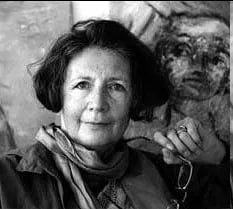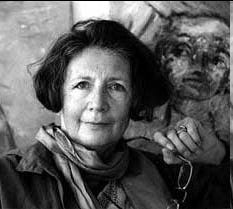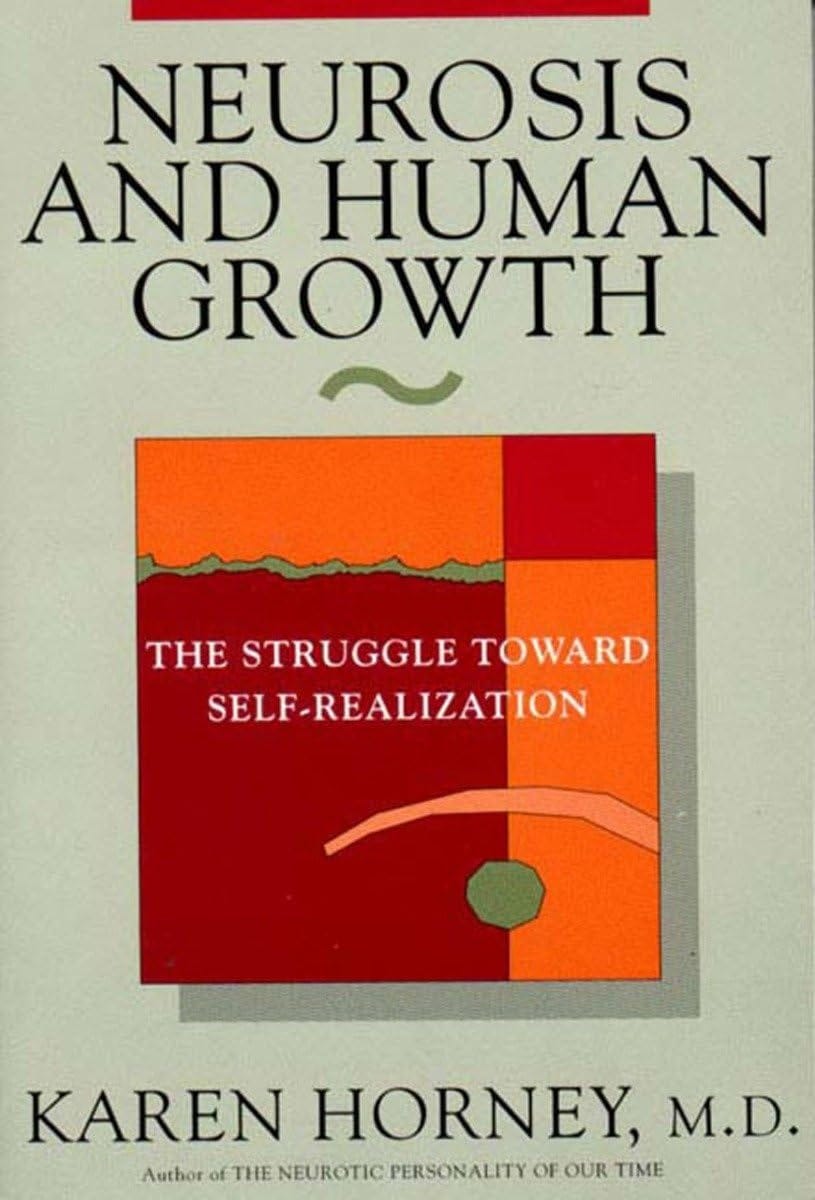Black Pedagogy - PART 1 : Alice Miller and others
Alice Miller : I understand 'black pedagogy' to be a parenting approach that is directed toward breaking the will of the child.
The state demands the utmost in obedience and sacrifice from its citizens, but incapacitates them through excessive secrecy and censorship of communication and expression of opinion.
— Prof. Dr. Sigmund Freud, 1915.
Source :
„Zeitgemäßes über Krieg und Tod“. GW X, 323-355, 324, Freud, S. (1915)
………………………………………………………………………………………………………………………….
The intergenerational trauma
Prof. DDr. Kai-Uwe Herthneck completed studies in human medicine, clinical psychology as well as philosophy and philology in Tübingen and Bologna. Medical doctorate in psychiatry, psychological doctorate in Asian psychotherapy. Training in psychoanalysis, behavioral therapy, systemic family therapy. Specializations in phenomenological psychiatry, psychosomatic medicine, psychodynamic psychotherapy.
Corona has only made more visible what was already there before. A system had already been established that was constituted by thousands of years of trauma.
At least since settling down, we have all carried more or less interpersonal “damage” within us and thus a constant transgenerational trauma transmission history. Traumatized people look for compensation for the traumas they have experienced and in doing so often cause new ones to those around them.
The time of the “pandemic” was like a mixture of the lived Milgram experiment coupled with Stockholm syndrome.
The film HOPE is finally finished and can be viewed free of charge at: www.hope-doku.com
Source ( in German ) :
Interview with Kai-Uwe Herthneck – Corona has only made more visible what was already there before
Published on: July 15, 2024
………………………………………………………………………………………………………………………….
Black pedagogy ( Poisonous pedagogy )
Compassion and tolerance are not acquired through intellectual knowledge. If we are unable to let our awareness of the fact that we were treated in childhood with contempt, if we do not live it and think it over, we pass on this contemptuous treatment.
The trend related to the concept of Black Pedagogy was initiated by the Swiss psychoanalyst of Polish origin, Alice Miller in 1980, with the publication of her study on the psychological abuse that the respondents experienced in their early childhood and then, unaware of this fact, applied to their own children. The research has clearly revealed the phenomenon of inheriting discriminatory attitudes. Since then, research on the negative impact of some educational theories and practices that perpetuate the forms and mechanisms of repressing children has become common.
At the turn of the 1960s and 1970s in West Germany, a sensational trial of the sex offender Jürgen Bartsch took place. From the age of 15 to 20, he committed indescribably cruel murders on children. This extreme example, analyzed by sociologists and psychiatrists, revealed how the inherited, pathological patterns of German decency, upbringing / discipline and the system of power made it possible for most Germans not only to accept the policies of Hitler and the Third Reich, but also to uncritically adapt to it for many years.
It might seem that the "Third Reich" was not Jürgen Bartsch's experience, but his biography reveals that perversely National Socialism, discipline and an authoritarian education taken to the extreme marked his childhood and youth. Born in 1946 as the illegitimate son of a war widow suffering from tuberculosis and a seasonal worker, Karl-Heinz Sadrozinski - later Jürgen Bartsch, was left in a hospital in the maternity ward for a year, where he was found by the childless elderly Bartsch couple and decided to adopt. The child was not supposed to find out about his adoption, for this purpose contacts with peers or teenagers were strictly forbidden by the parents, which left the boy completely defenseless against the domestic and institutional regime. In the course of his education and upbringing, he experienced extreme violence, rapes against the people around him. During the trial, when the details of the case became public, they caused a wave of indignation, terror and despair. It was also astounded how such cruelty was even possible, in a young man who seemed sympathetic, intelligent, sensitive and showed no signs of a cruel criminal. After all, he grew up in a decent bourgeois home, under "loving care".
In the monologue, a conversation between Jurgen Bartsch and Wilifried Rasch, which is the basis of the film, a mechanism was recorded that made upbringing one series of persecution.
We are dependent on individual individuals (not only on institutions) who can easily take over the masses of people, if they represent an educational system shared with these masses. People who have been pedagogically manipulated as children, as adults do not even feel what can be done with them.
https://nieznalska.com/en/schwarze-padagogik-black-pedagogy/
………………………………………………………………………………………………………………………….
Alice Miller
"I understand 'black pedagogy' to be a parenting approach that is directed toward breaking the will of the child, in order to make it an obedient subject, with the aid of open or concealed use of force, manipulation, and repression."
— Alice Miller
"I understand 'black pedagogy' to be a parenting approach that is directed toward breaking the will of the child, in order to make it an obedient subject, with the aid of open or concealed use of force, manipulation, and repression."
— Alice Miller
Alice Miller began her career as a psychoanalyst, but later distanced herself from psychoanalysis and now considered herself a “childhood researcher”. She recognized the mechanisms of “black pedagogy” identified byrutschky using the means of psychoanalysis in her first theoretical home, which she calls “black psychoanalysis,” and ultimately turned away decisively in a process of theoretical reconsideration (Miller 1979, 1980, 1983 ).
The focus of their criticism was initially on upbringing that aimed to adapt the child's behavior one-sidedly to parental needs. Miller assumed that such an upbringing led to the development of a “false self” in the child. [21] The false self is a concept that the English psychoanalyst Donald Winnicott introduced into psychoanalytic discourse in 1960 to characterize the behavior of people who do not demonstrate authenticity because they appear to have built a facade around themselves for self-protection. [22]
Full article :
https://de.wikipedia.org/wiki/Schwarze_P%C3%A4dagogik
………………………………………………………………………………………………………………………….
Poisonous pedagogy
……………………………………………
In sociology and psychology, poisonous pedagogy, also called black pedagogy (from the original German name schwarze Pädagogik), is any traditional child-raising methods which modern pedagogy considers repressive and harmful. It includes behaviours and communication that theorists consider to be manipulative or violent, such as extreme forms of corporal punishment.
Origin and definitions
The concept was first introduced by Katharina Rutschky in her 1977 work Schwarze Pädagogik. Quellen zur Naturgeschichte der bürgerlichen Erziehung. The psychologist Alice Miller used the concept to describe child-raising approaches that, she believed, damage a child's emotional development. Miller claims that this alleged emotional damage promotes adult behavior harmful to individuals. She explains how poisonous pedagogy in the name of "child rearing" leads to dysfunctions and neurosis of all kinds. For instance in her book For Your Own Good she discussed its common impact on three distinct lives: Adolf Hitler, Jürgen Bartsch and Christiane F., whereas in The Body Never Lies, she talks about the impact of childhood trauma and repressed emotions on the human body.
"Poisonous pedagogy" is described by these theorists as what happens when a parent (or teacher, nurse, or other caregiver) believes that a young child's behavior demonstrates that the child is infected with the "seeds of evil", and therefore attempts to weed out the evil, either by emotional manipulation or by brute force. Simple examples include the beating of children as punishment for lying, or mothers who refuse to feed their newborn until a set time, in order to "teach him patience, which will be useful for him in later life".
Poisonous pedagogy, in Katharina Rutschky's definition, aims to inculcate a social superego in the child, to construct a basic defense against drives in the child's psyche, to toughen the child for later life, and to instrumentalize the body parts and senses in favor of socially defined functions. Although not explicitly, "poisonous pedagogy" serves, these theorists allege, as a rationalization of sadism and a defense against the feelings of the parent himself or of the person involved.
For methods, Rutschky claims, "poisonous pedagogy" makes use of initiation rites (for example, internalizing a threat of death), the application of pain (including psychological), the totalitarian supervision of the child (body control, behavior, obedience, prohibition of lying, etc.), taboos against touching, the denial of basic needs, and an extreme desire for order.
Historical background
Ancient cultures
The Roman poets Plautus, Horace, Martial, and Juvenal described corporal punishments in schools. It is also written in the Bible, Proverbs 13:24. "He that spareth his rod hateth his son: but he that loveth him chasteneth him betimes." Corporal punishment was widespread in all of these civilizations.
The expression "Spare the rod and spoil the child" is a satirical parody of a verse from the Bible, Proverbs, 13:24, and was adapted by Samuel Butler in the satirical poem Hudibras.
Germany
In the 18th century common notions of the evil nature of children or of taming bear witness to superstitions and the wish to be able to train human beings like animals.
One German child-raising book in the 18th century said: "These first years have, among other things, the advantage that one can use force and compulsion. With age children forget everything they encountered in their early childhood. Thus if one can take away children's will, they will not remember afterward that they had had a will."
In Germany the parental right to discipline was abolished by a change in the law in 2000. The Federal Minister for Family Affairs from 1994 to 1998 Claudia Nolte had wanted to maintain parents' right to use mild spanking, contrary to the views of Alice Miller in her 1980 book For Your Own Good.
Miller has written: "I understand 'black pedagogy' to be a parenting approach that is directed toward breaking the will of the child, in order to make it an obedient subject, with the aid of open or concealed use of force, manipulation, and repression."
Psychological background
A relevant criterion in defining poisonous pedagogy is if a manipulative approach reveals behavioural issues in the parent such as a blindness to feelings, cruelty, or a tendency toward violence, or if strong negative emotions such as anger or hate are being discharged, emotions against which the juvenile or infant psyche, with its age-based limitations, cannot defend itself.
Miller also came to the conclusion, as a result of her therapeutic work, that she needed to "work on" her own childhood in order to understand her clients better. She takes the view that "poisonous pedagogy" is a behavior that is passed on from generation to generation by being euphemized and sanitized.
Other themes of the controversial [citation needed] author Katharina Rutschky are parenting, feminist criticism, and abuse.
Personalities
Influential advocates of various forms of corporal punishment include John Harvey Kellogg, Moritz Schreber, and others.
Discussion and criticism
Alice Miller defines poisonous pedagogy as all types of behavior that she believes is intended to manipulate children's characters through force or deception. Her focus is not merely on smacking (although she has said that "Every smack is a humiliation" and clearly opposes corporal punishment) but also on various other forms of manipulation, deceit, hypocrisy, and coercion, which she argues are commonly used by parents and teachers against children.[citation needed]
Sociology professor Frank Furedi believes that such declarations are too sweeping and disconnected from reality. Furedi labels many advocates of a total ban on physical punishment as being against all forms of punishing children. He sees the underlying agenda as an anti-parent crusade, and argues that some research on the effects of spanking is far less clear-cut than the claims made on its behalf by what he calls "anti-smacking zealots".
Social psychologist David Smail contends that society bears a large part of the responsibility for individuals' dysfunctional behavior, but as yet has not addressed this in any meaningful way.[citation needed]
Developmental psychologist James W. Prescott, in the 1970s, carried out research into primate child-mother bonding and noted a link between disruption to the child-mother bonding process and the emergence of violence and fear based behaviour in the young primates. He suggests that the same dynamic functions for human beings, through the breakdown of empathy.
In 1975, Prescott outlined a link between violence and disruption of the child-mother bonding process in human societies, drawing on a cross-cultural study of Aboriginal societies and a statistical analysis of those cultures' practices towards the nurturing of the natural child-mother bonding process, and an examination of historical attitudes towards children from Euramerican literature and the historical record.
He concluded that the disrupted child-mother bonding process was an absolute predictor of the emergence of violence, hierarchy, rigid gender roles, a dominatory psychology and violent territorial acquisition. Intervening upon and disrupting natural adolescent sexuality also formed part of the overall picture. This discovery was not expected. Most societies were peaceful, and the incidence of extremely violent societies was low.
Prescott states that the research showed that over time, disruptive practices[clarification needed] become the 'norm' and as generations grow and pass on these practices, the society in question begins to demonstrate a clear lack of empathy, and violence is codified. The history of poisonous pedagogy, in his view, is the history of this codification of these non-nurturant practices. It is upon these that current transmitted practice is found.
Recent research into living Aboriginal[clarification needed] societies and a review of the historical record of first contact data, and other recorded observations, over the past 400 years have shown that the majority of Aboriginal cultures do not chastise children.[12][scientific citation needed] The data show that children are treated with much more respect, trust and empathy than was previously believed. [scientific citation needed]
( … )
Source / Full article :
https://en.wikipedia.org/wiki/Poisonous_pedagogy
………………………………………………………………………………………………………………………….
Karen Horney
Tyranny and inner dictates
Nurosis and Human Growth: The struggle toward self-realization (English Edition).
In Neurosis and Human Growth, Dr. Horney discusses the neurotic process as a special form of the human development, the antithesis of healthy growth. She unfolds the different stages of this situation, describing neurotic claims, the tyranny or inner dictates and the neurotic's solutions for relieving the tensions of conflict in such emotional attitudes as domination, self-effacement, dependency, or resignation. Throughout, she outlines with penetrating insight the forces that work for and against the person's realization of his or her potentialities.
First Published in 1950. Routledge is an imprint of Taylor & Francis, an informa company.
………………………………………………………………………………………………………………………….
"I'm realizing that my false of superiority comes from actually deeply hating myself."
…………………………………………………………………………………………………………………………









